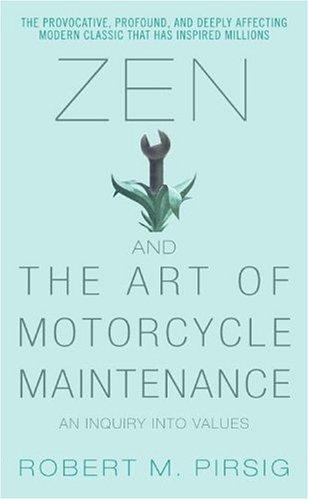Review of 'Zen And The Art Of Motorcycle Maintenance' on 'Storygraph'
3 stars
This book started slow and frustrating but redeemed itself by the end. I’m not a philosophy expert by any stretch of the imagination but I found Part 3 engaging and thought provoking.
Part 1 felt, to me, marred by a sort of narcissism that was grating. Both the narrator and the author felt a bit like a “well actually” reply guy except instead of one exhausting tweet, he wrote a whole book.
At one point the narrator describes a time when he felt seen and accepted as his true self, and it was when he stood at the head of a classroom and everyone hung on his every word. This is revealing.
But like I said, although this narcissism never went away, and the narrator remains, to me, deeply unlikable, the philosophy of the later parts drowns it out and it becomes worth reading.
This book started slow and frustrating but redeemed itself by the end. I’m not a philosophy expert by any stretch of the imagination but I found Part 3 engaging and thought provoking.
Part 1 felt, to me, marred by a sort of narcissism that was grating. Both the narrator and the author felt a bit like a “well actually” reply guy except instead of one exhausting tweet, he wrote a whole book.
At one point the narrator describes a time when he felt seen and accepted as his true self, and it was when he stood at the head of a classroom and everyone hung on his every word. This is revealing.
But like I said, although this narcissism never went away, and the narrator remains, to me, deeply unlikable, the philosophy of the later parts drowns it out and it becomes worth reading.



